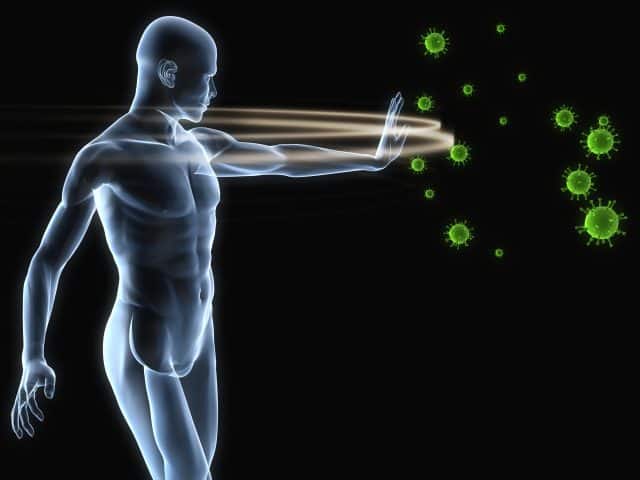Last year alone, 9.6 million people died from cancer. Studies show that number increasing by nearly 20% in the next two decades.
Although we still don’t have a way to eradicate this deadly disease, scientists have been developing new, innovative methods to treat cancer that are bringing us closer and closer to a cure. One of these methods is called “immunotherapy,” and it’s changing the way we treat cancer.
Immunotherapy is based on the idea that the body’s own powerful immune system can help to fight cancer. Treatments that stimulate the immune system are often combined with conventional cancer treatments to attack cancerous cells in many different ways. This is called “integrative oncology,” and it’s becoming very popular in mainstream medical communities, especially to treat lung and skin cancers.
Why use the immune system to fight cancer?
 Triggering the immune system is the only natural, non-toxic way to treat any disease in the human body. Although the immune system is designed to stave off foreign invaders, cancer usually finds ways to evade its detection. Once researchers discovered how to “outsmart” cancer, oncologists could incorporate the immune system in the battle against malignant cells.
Triggering the immune system is the only natural, non-toxic way to treat any disease in the human body. Although the immune system is designed to stave off foreign invaders, cancer usually finds ways to evade its detection. Once researchers discovered how to “outsmart” cancer, oncologists could incorporate the immune system in the battle against malignant cells.
 One way that physicians are using the body’s immune system is by using an outside stimulus to “trigger” a patient’s weakened immune system and help it to function at its best. Another method involves injecting parts of the immune system that are artificially created in a lab to contain a higher strength of proteins that are derived from the patient’s specific tumor. This means that when those constructed immune parts enter the body, they can easily recognize the cancerous cells as “foreign” and begin to destroy them.
One way that physicians are using the body’s immune system is by using an outside stimulus to “trigger” a patient’s weakened immune system and help it to function at its best. Another method involves injecting parts of the immune system that are artificially created in a lab to contain a higher strength of proteins that are derived from the patient’s specific tumor. This means that when those constructed immune parts enter the body, they can easily recognize the cancerous cells as “foreign” and begin to destroy them.
Kinds of Immunotherapy
Immunotherapy can be divided into three main classes: cell-based, antibody-based, and cytokine-based. The therapies involving monoclonal antibodies and cytokines are called passive immunotherapy. When immune cells are adapted to serve the severity of the particular disease and administered to the patient through injections, the therapy is called active immunotherapy.

- Active Immunotherapy: Active Immunotherapy uses both cell-based and vector-based methods. Cell-based methods involve using a person’s own cells to treat their cancer, and vector-based methods involve using an external path that is genetically created in a lab to give off antigens particular to the specific tumor. They are then filled with immune cells and given through an injection.
- Cell-Based Method: A method that acts as a kind of advocate for the patient’s immune system by injecting powerful immune cells directly into the bloodstream. This triggers the immune system as a whole to start fighting, but it also provides the ability to combat cancerous cells specifically.
- Passive Immunotherapy: A method that uses monoclonal (laboratory made) antibodies, as well as cytokines and chemokines to protect against specific targets within the patient’s body. They can be concentrated to work against a specific antigen, found on the surfaces of cancer cells, or on a cancer-specific enzyme or protein. Antibodies are one of the most powerful candidates because of their role in adaptive immune responses and also because they are the best at counteracting the harmful effects of antigens. Cytokines and chemokines are great at controlling immune responses, which means that they can be used to eliminate cancerous cells.
- Antibody-Based Therapy: Monoclonal antibodies are created in a laboratory, and they typically involve the use of mouse-models, so the antibodies formed are known as murine antibodies. With the use of mouse models, it’s always possible that the immune system will reject the antibodies and that negative side effects will occur. Chimeric antibodies, which are made up of part mouse and part human antibodies, help to counteract the risk of these negative immune responses. Humanized antibodies are made up mostly of human antibodies, with a few parts being interchanged with their murine counterparts. Human antibodies are made up complete of human antibodies.
- Cytokine-Based Therapy: Cytokines are able to modify immune signals, so scientists have begun to use this positive benefit against tumor cells to create cell death. The most common cytokines are Interferons (IFNs) and Interleukins (ILs). The body typically produces Interferons to work against viral infections, but researchers have discovered their efficacy as therapeutic agents that treat cancers, particularly hairy-cell leukemia, AIDS-related Kaposi’s sarcoma, follicular lymphoma, chronic myeloid leukemia, and melanoma. Among the three types of interferons, only IFN type 1 has been shown to be effective at treating cancer.


























